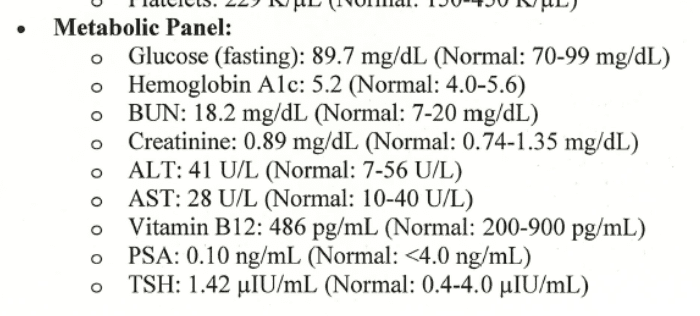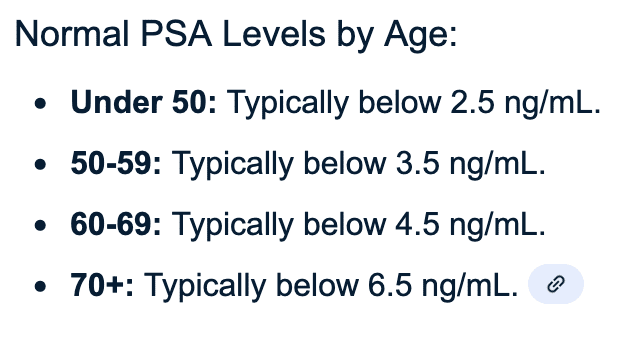Search Posts
Recent Posts
- Vinny Paz to be inducted TODAY into the International Boxing Hall of Fame – CES Boxing June 7, 2025
- In the News… quick recap of the week’s news (6.7.25) June 7, 2025
- Burn with Kearns: Strong without the spend: How scraps became strength tools – Kevin Kearns June 7, 2025
- Rhode Island Weather for June 7, 2025 – Jack Donnelly June 7, 2025
- How to advocate for threatened properties: The Heritage Alliance of Pawtucket June 7, 2025
Categories
Subscribe!
Thanks for subscribing! Please check your email for further instructions.

(updated) Former President Biden diagnosed with aggressive, metastasized prostate cancer
Shocking news to hear in a statement released by former President Joseph Biden’s office on Sunday afternoon – “Last week, President Joe Biden was seen for a new finding of a prostate nodule after experiencing increasing urinary symptoms. On Friday, he was diagnosed with prostate cancer, characterized by a Gleason score of 9 (Grade Group 5) with metastasis to the bone. While this represents a more aggressive form of the disease, the cancer appears to be hormone-sensitive which allows for effective management.”
The President and family are discussing treatment alternatives with his physicians, which could include surgery, radiation of various types and chemotherapy. A 5 year survival rate for this type of cancer is 30 to 40%. Once cancer has spread to the bone it is no longer curable, but is in most cases, controllable. Being hormone-sensitive is a positive sign for treatment.
Biden is 82 years old. He is at home in Delaware. He was evaluated for a “small nodule” discovered on his prostate after complaining of urinary problems. His last Presidential exam was in February of 2024 at Walter Reed. There is no record or public statement indicating that Biden’s PSA test results were released publicly before his prostate cancer diagnosis in 2025. There was a Summary of the 2023 exam, but that document is no longer available.
President Trump Medical Records
President Trump’s medical exam in 2025 noted his PSA:

Two charts to better understand what numbers mean:


Cancer may be present regardless of PSA levels
Prostate Cancer
About 12.9% of men will be diagnosed with prostate cancer at some point during their lifetime, according to the National Cancer Institute.
Prostate cancer is a type of cancer that develops in the prostate gland, a walnut-sized gland in men located below the bladder. It’s the most common cancer among men. While most cases are treated successfully, according to the National Cancer Institute, understanding its causes, symptoms, diagnosis, and treatment options is crucial.
Saying that he had new urinary symptoms, those symptoms may include: Frequent urination, especially at night, a weak urine stream, difficulty starting to urinate, or feeling like the bladder hasn’t fully emptied. Also, Blood in urine or semen, bone pain, unexplained weight loss, and fatigue.
Metastasis is the process where cancer cells break away from the original tumor and travel to other parts of the body through the bloodstream or lymphatic system – such as the bones – it is often a metastasis that causes pain for the patient and not the original site of the cancer.
Treatment for all types of prostate cancer can include:
Observation: For men with low-risk cancers, doctors may choose to monitor the cancer closely rather than immediately treat it.
Surgery: Prostatectomy, the surgical removal of the prostate gland, is a common treatment option.
Radiation Therapy: Radiation can be used to kill cancer cells.
Hormone Therapy: Hormone therapy can help shrink or slow the growth of prostate cancer.
Other Treatments: Chemotherapy, targeted therapy, immunotherapy, and ablation therapies may also be used, depending on the stage and type of cancer.
For more information about prostate cancer:
Urology Health at: https://www.urologyhealth.org
National Cancer Institute at: National Cancer Institute
New Political Concerns and Questions
Hundreds of well-wishes came in the hours after Biden’s announcement, including past presidents, staff, and leaders.
In the hours and days before, and the hours after President Biden’s diagnosis revelation, questions had been increasing on the status of the his health while serving as President. A few years ago Biden twice in one weekend referenced that he had cancer, later to withdraw the comment, saying he was referencing his deceased son, and cancer risk to people in general. His physical gait and propensity for tripping or falling now has questions about the metastasizing to the bone. Mental confusion. The fact that PSA levels were never released on annual physicals, the latest in February of 2024. Aggressive cancers usually take years to reveal themselves undetected at a lesser stage. Jill Biden’s press secretary on a news interview yesterday morning described the White House as “allergic to transparency “about even the smallest things, building a culture of cover-ups.
Books and interviews on the status of the President’s health while President have questioned who was running the country, as well as what, exactly, were his medical issues. Congressional hearings have been mentioned to determine staff “cover-ups” and controversial about the “auto-pen” use to sign many Executive Orders in his final days in office.
For the public
Any time a celebrity or recognized person in the news is public about a disease, there is an increase in members of the public who may have symptoms or may be hesitant to see their doctors out of fear or other concerns, to go to the doctor for their check-ups.
While it’s difficult to predict exact numbers, former President Joe Biden’s recent disclosure of his aggressive prostate cancer diagnosis is expected to raise awareness and potentially lead to an increase in men seeking prostate cancer screenings.
Prostate cancer is the second-leading cause of cancer death among men in the U.S., but early-stage prostate cancer has a five-year survival rate of nearly 99% .nypost.com+1theaustralian.com.au+1WRAL.com
The heightened public awareness resulting from President Biden’s disclosure is likely to encourage more men to undergo prostate cancer screenings, leading to earlier detection and improved treatment outcomes.
This is a developing story
